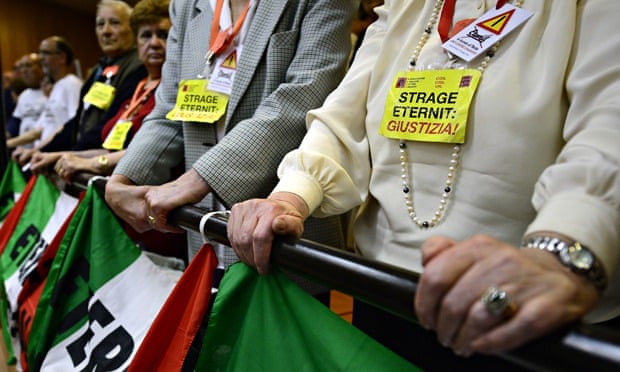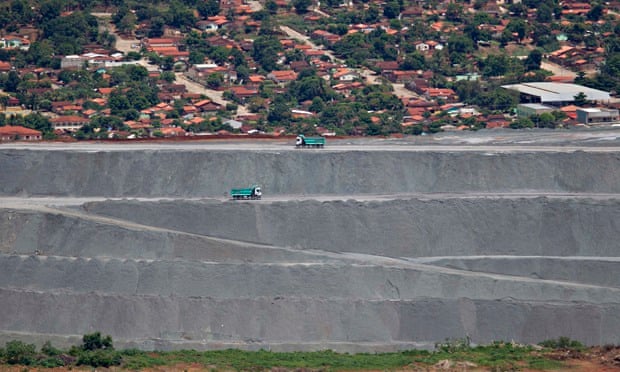The asbestos industry in Brazil and the human cost
29 November, 2014
Italian supreme court’s asbestos ruling could have major implications for Brazil. theguardian.com. November 1º, 2014, Court’s cancellation of Swiss asbestos polluter’s jail sentence dismays activists in Brazil, where substance is widely used. The Italian supreme court ruling on a case brought against Eternit, a Swiss-based building firm, could have major implications for the continued use of asbestos across the world. On Wednesday, the court in Rome cancelled an 18-year jail sentence on the firm’s former owner Stephan Schmidheiny, who was facing charges of environmental disaster, having been found guilty of failing to comply with safety rules in two previous rulings.
Fibras de asbesto
 Relatives of those who died from asbestos-related diseases, who were shocked by the ruling, wear stickers saying ‘Eternit disaster: justice!’ Photograph: Olivier Morin/AFP
Relatives of those who died from asbestos-related diseases, who were shocked by the ruling, wear stickers saying ‘Eternit disaster: justice!’ Photograph: Olivier Morin/AFPThe basis of the court’s ruling was that the statute of limitations had passed – Eternit left Italy 25 years ago – but the local trade unions and the Italian asbestos victims’ association, Afeva, who brought the case jointly, now intend to take it to Strasbourg.
 The Cana Brava mine, owned and operated by Sama, part of the Brazilian Eternit Group, in Minacu, Brazil. Cana Brava is the only mine producing chrysotile, or white asbestos, in Latin America. Photograph: Ueslei Marcelino/ReutersLinda Reinstein, president of the US-based Asbestos Disease Awareness Organisation, said: “With this verdict, money and power won again. Eternit’s flagrant disregard for public health and the environment is reprehensible and criminal.”
The Cana Brava mine, owned and operated by Sama, part of the Brazilian Eternit Group, in Minacu, Brazil. Cana Brava is the only mine producing chrysotile, or white asbestos, in Latin America. Photograph: Ueslei Marcelino/ReutersLinda Reinstein, president of the US-based Asbestos Disease Awareness Organisation, said: “With this verdict, money and power won again. Eternit’s flagrant disregard for public health and the environment is reprehensible and criminal.”